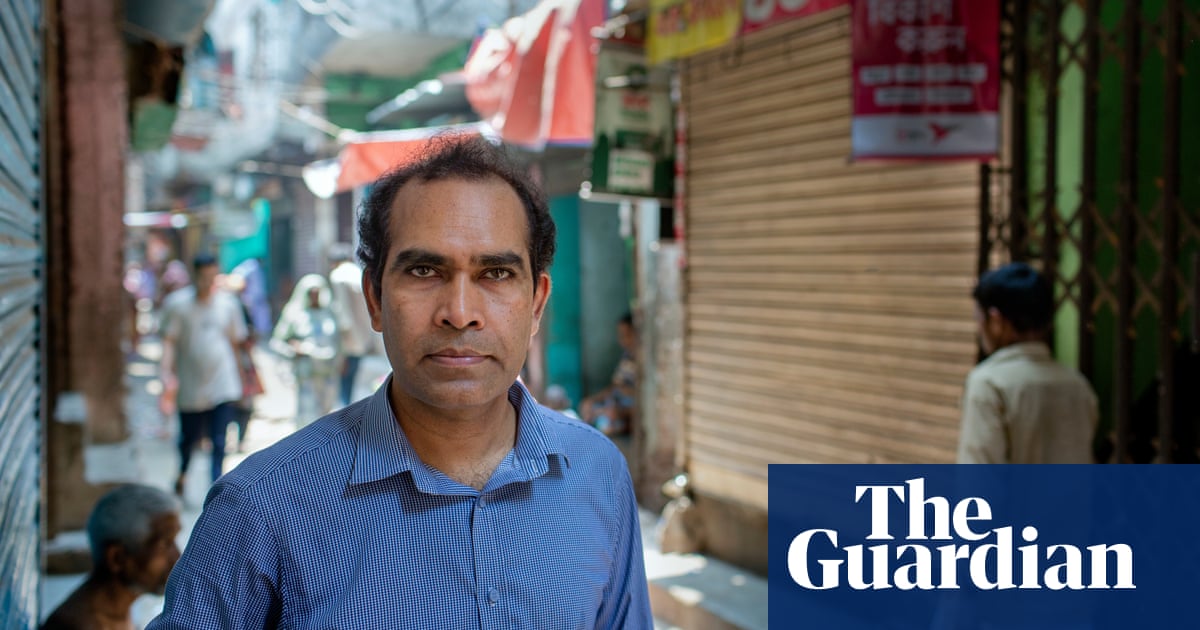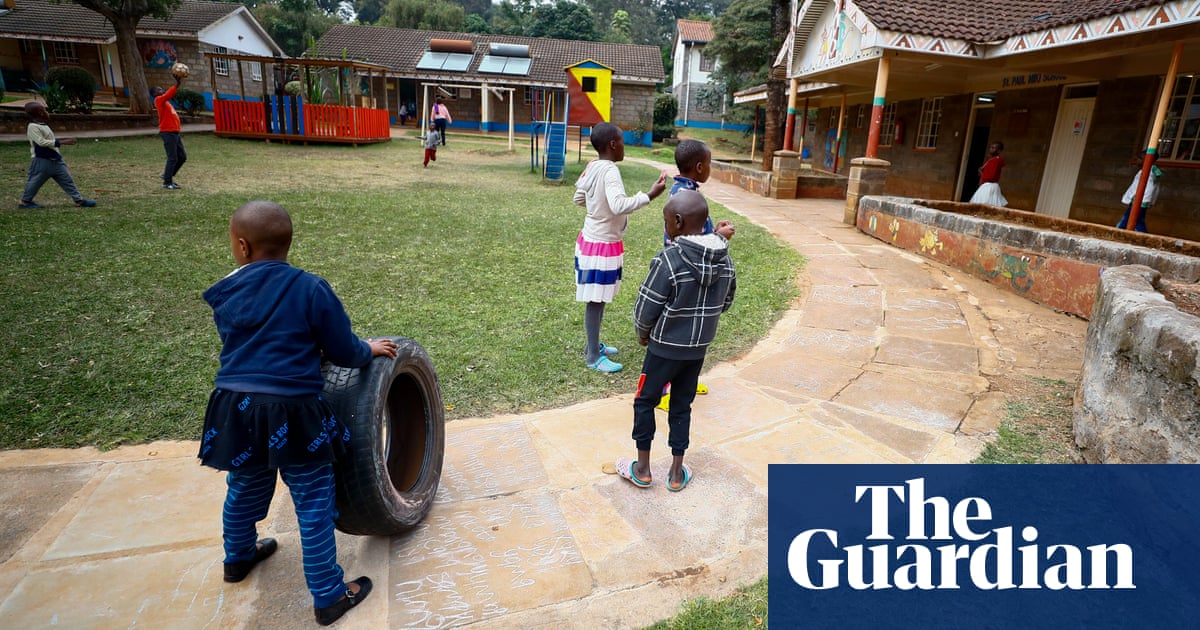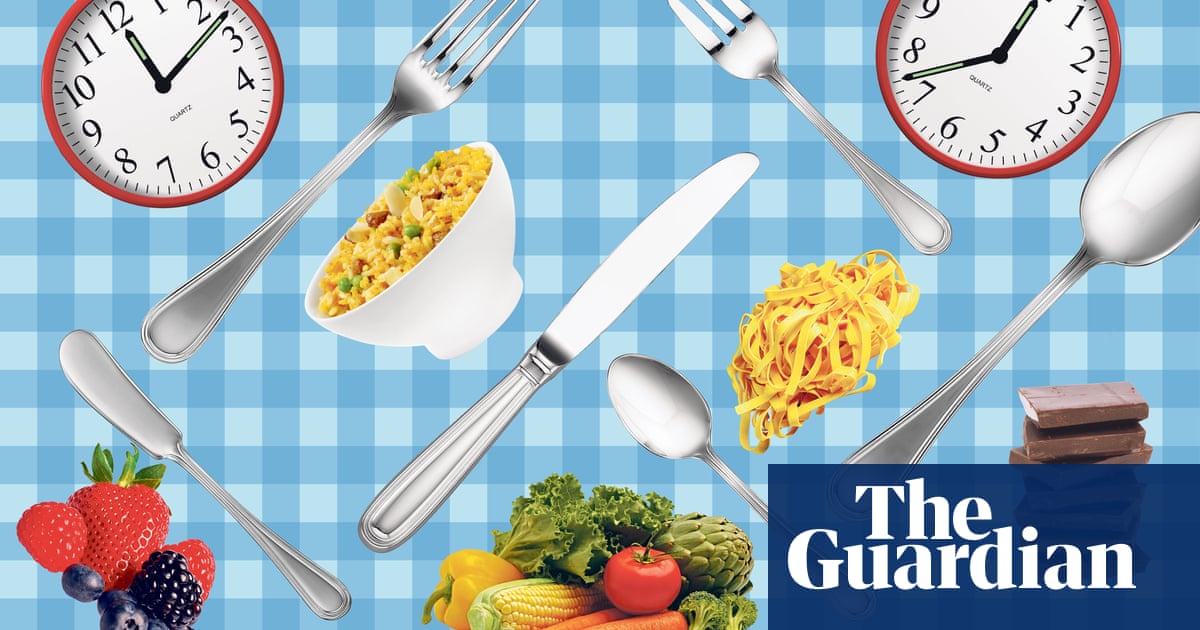
More than two decades ago, Patti Smith and a group of other artists were sitting with the Dalai Lama when the late Adam Yauch of the Beastie Boys asked the Tibetan spiritual leader a question: what’s the number-one thing that young people can do to make a better world? Without missing a beat, the Dalai Lama replied: “Look after the environment.”
“I thought it was so beautiful,” Smith says in her trademark New York drawl. “That was his number-one preoccupation. Not to free Tibet, but to take in hand a global concern that was going to affect us all, on a scale we haven’t seen before.”
The climate emergency is at the forefront of Smith’s mind. We’re meeting via Zoom to discuss her headline concert at the opening of Cop26, and I’m momentarily thrown by the sight of the queen of punk waving at me from her bedroom in New York. But there she is, her thin frame draped in a green shirt, her long silver hair in plaited pigtails on each side of her angular, undone face. A guitar rests in the corner of the room, while her cat makes regular appearances on screen.
Smith will be playing at Glasgow’s Theatre Royal with Pathways to Paris, an organisation founded by her daughter Jesse Paris Smith and the musician Rebecca Foon. Launched in the lead up to Cop21 in Paris, it brings together performers, artists and activists – including Bill McKibben, Tenzin Choegyal and the Soundwalk Collective – to encourage action to address the climate crisis. The group is campaigning for cities to switch to 100% renewable energy by 2040.
“I think the climate movement is the most important thing on the planet right now. It permeates everything. Civil rights, human rights, women’s rights,” Smith says.
I first discovered Smith, like many others, when I was on the cusp of adulthood and enthralled by the counterculture of 50s and 60s New York. Jack Kerouac, Bob Dylan, Jimi Hendrix … I read much and often of the cool men, men, men who roamed the lobby of the Chelsea Hotel and lived on the edge of abandon. But here was a chick who could do it just as well, if not better.
Where to start? At the age of 20, Smith left her family home in New Jersey for NYC, where she hustled for odd jobs and beds, using her art and poetry as currency. Driven by an internal calling, she nourished herself with the adventurousness of Rimbaud, the devotion of William Blake. Her life changed when she met Robert Mapplethorpe, her muse, lover and hero of her bestselling memoir Just Kids, and the pair embarked on an intense and creatively productive relationship. Her unique blend of poetry and rock, her sonorous voice and that charismatic, rough delivery, earned her the title of “punk poet laureate”. She wrote a hit with Bruce Springsteen, toured with Bob Dylan. She is a Commandeur de l’Ordre des Arts et des Lettres and a Rock and Roll Hall of Fame inductee. Really, she’s one of the coolest women alive.
So it’s gratifying to discover just how cheery, encouraging and entirely self-effacing she can be. We’re joined, for a time, by Smith’s daughter Jesse, who from certain angles is a young version of her. Jesse talks ardently about ensuring a safer world for tomorrow’s children. “We started Pathways to Paris seven years ago to bring musicians and artists into the climate movement, and connect them directly with the politicians, scientists, and activists. We did a year of concerts leading up to Paris in December 2015, and just seeing the impact that it had, we felt our organisation really filled a gap between the arts and the climate movement, so we kept going.”
Smith watches on, ever the proud and dutiful mother. Between the early 80s and mid 90s, Smith disappeared from public life to focus on her husband, the late MC5 guitarist Fred “Sonic” Smith, and their two children, Jesse and Jackson. “It’s Jesse that’s given me a chance to support the climate movement,” says Patti. “I’ve learnt so much from her. She even taught me to recycle. I’m going to be 75 this year, I’ve seen a lot of changes in areas that were once beautiful. Things have already been destroyed and young people are being born into this, and they’re furious.”
Smith’s concerns about the environment are tied to her love of the sea, which she would visit often as a child. “There was so much life in the sea. Oysters, clams, mussels, and you could smell the salt stinging in your nose. But as years went by, there were less of them, and there were these black globules, probably from oil spills.” She compares climate scepticism to responses to the Vietnam war, which she says many Americans only became concerned with when they realised they would be personally affected. “When thousands of boyfriends, husbands, sons and brothers started dying in Vietnam, then people got on board with the movement.”
From protesting that war to performing at radical Green candidate Ralph Nader’s rallies in 2000, calling for the impeachment of George W Bush over the invasion of Iraq, and writing songs about Guantanamo Bay and the pro-Palestinian campaigner Rachel Corrie, Smith has been politics-adjacent for much of her working life. Her song People Have the Power has become an international anthem for protest and change. So how far back does her activism date?
“Oh, I don’t see myself as an activist …”
“Mom!” Jesse interrupts. “Stop saying that. I hate it when she says that. It’s like when she says she’s not a musician. Of course you are.”
Smith smiles, deferring to her daughter, who says musicians and artists can use their platforms to amplify vital messages. Eventually, Patti explains that politics is irrelevant to her; she is first and foremost an artist, who on occasions stands up for what she believes is right. “I try to permeate some good through my work. And I’m really happy to be supporting Jesse who is very passionate on this topic.”
When I speak to Patti for a second time, it’s just me and her. I ask her how we can convince people of the climate emergency when so many are reluctant to make sacrifices, and during a period in which every concern, no matter how grave or altruistic, is reduced to a culture war. She says she’s never seen times like those we are living in.
“It’s a terrible epidemic in the 21st century, and it got magnified in the period that Trump was elected and it’s really gone viral,” she says. “These are the most complex times, partly because of social media and misinformation. Everything becomes a political question. People wouldn’t even get vaccines or wear masks because it became a political stance … and then they get sick and really regret that they didn’t take the time or it didn’t open their mind to the to the situation.” She pauses. “I don’t know what the answer is, except that we just have to fight for what is right.”
Is there a tension, I ask her, between being an artist and taking a stand? From criticisms of sloganeering directed at John Lennon and Yoko Ono in the early 70s, to Tory leaders mocking Stormzy for backing Jeremy Corbyn’s Labour, and the recent outcry over Sally Rooney choosing not to work with an Israeli publisher out of support for Palestinian rights, people often kick back when artists stick their heads above the parapet.
“All of my activism is an extension of common sense,” Smith says. “It’s obviously the right thing to do to fight for civil rights, it’s not a matter of consideration or taste. Climate change, war, they really affect all people. So much of my efforts, so-called politically, have been toward the greater good. It’s something that sometimes hits us very specifically, like, the writer [Rooney], I thought that was a very brave move, because I have my own considerations. I haven’t performed in Israel since 1999.”
Does she ever get backlash for standing up for what she believes is right? “Oh, I mean I’ve been punished in many ways. I’m not allowed in China, the Chinese government doesn’t allow my art to be in galleries or museums there. After I campaigned against attacking Iraq, it was hard to get work or airplay. A lot of people were angry at me. But I thought going into Iraq was an act of aggression and revenge, it was morally wrong. Over and over, either from the right or the left I’ve had criticism because I don’t really navigate in a way that people want me to navigate. But I just refuse to be anybody’s poster child, I do things my own way.” It’s a feeling she’s had from a young age. She left organised religion when she was 13 following years of intense scriptural education. “I really think an artist almost more than anyone has got to be free.”
And that’s what Smith and Mapplethorpe were all those years ago – free. Though they lived in squalid conditions and struggled to eat, they encouraged each other to keep pushing, to keep drawing and writing and taking pictures because that’s what they were put on the earth to do. Just Kids, she explains, was the result of a promise to Mapplethorpe hours before he died due to complications from HIV, but the book took her 10 years to write. Losing her husband Fred, and soon after that her brother, all while bringing up two kids, delayed the writing process. “We always had a little game called ‘our story’. Sometimes at night, Robert would say, ‘tell me our story’, and I would begin it from when we met to where we were at that moment. Right before he died, he said, ‘Patti, will you write our story?’ I promised him I would.”
She has an extraordinary memory of that time, plus she kept little diaries she’d fill not with thoughts but just with events of the day. “So it’d be, literally, ‘June 5th: met Janis Joplin’, you know? ‘April 10th: Cut Robert’s hair like a rockabilly singer.’”
I wonder how it was, trying to make it as a female artist in a society dominated by men. Her beatnik mentors, including William Burroughs, Gregory Corso and Allen Ginsberg (who chatted her up when he thought she was a boy) were all men who wrote about each other. “You have to look at these people in the context of the times they lived. Gender identification was very strong then. But William and Allen were both homosexuals, at a time when it was looked upon as a disease or an aberration. The openness we have now came upon the shoulders of people like them.”
Smith did, however, experience her share of sexism. “When I grew up in the early 60s, girls were supposed to be mothers, secretaries, maybe hairdressers. Even in the early 70s, when I started playing rock and roll, there weren’t a lot of girls taking an aggressive stance, playing feedback, you know. I had trouble recruiting guitarists to play with me. They’d come in, see it was with a girl, and just leave.”
All the more impressive then, that she remains one of the few women to have given her name to an otherwise all-male group, which Bob Dylan came to watch one night in early 1975. “It was sort of a big deal because Bob Dylan didn’t really go to see anyone, he was pretty enigmatic.” In a certain period of life, Smith and Dylan would take regular walks “and just talk. I related completely to him. His arrogance, his humour, his mergence of poetry and performance.” In 2016, Smith picked up the Nobel prize on Dylan’s behalf. She calls him “a very private man”.
I can’t imagine a contemporary artist being so enigmatic now. Social media has offered us a window into the inner lives of some of our favourite writers and performers. And Smith is adapting to that culture. While she’s not wholeheartedly embracing every aspect of social media – we’re not getting pictures of banana bread or hot takes on Twitter – she is active on Instagram. Her profile is a curated space full of poetry, song and book recommendations. “I crafted it that way. Once somebody said, ‘There’s no freedom of speech on your site’ because I deleted some horrible comments. But I’m not interested in people venting or arguing or saying terrible things.” Even though she can’t respond to all the messages from fans, she says she reads them all.
For now, Smith is happy to take cues from her daughter on how she can help bring attention to our climate emergency. She’s releasing a collaborative body of work with the Soundwalk Collective next year, combining soundscapes and improvised monologues, as well as working on a number of books. She doesn’t write much poetry anymore. Her life, and the things that concern her, are different now. Is there a particular period she looks back on as a favourite?
“I’ve lived so many lives, and they were all good. I can look back and see what I’ve gained, how I’ve evolved. Whether it was sorrowful times or turbulent times, they all formed me. So what’s my favourite period?” she says, repeating the question before deciding: “Right now. I’m alive.”












